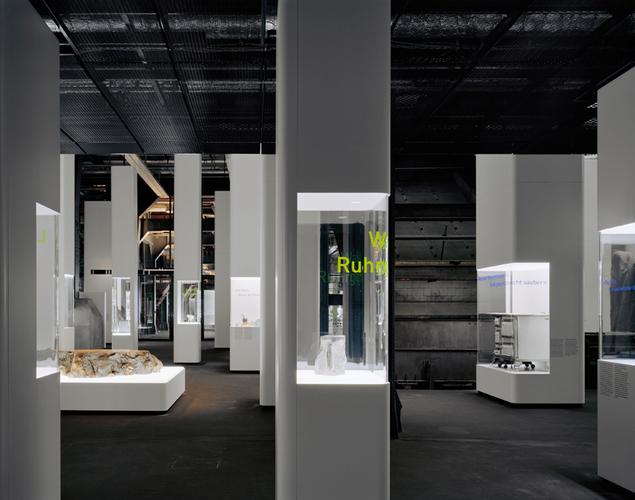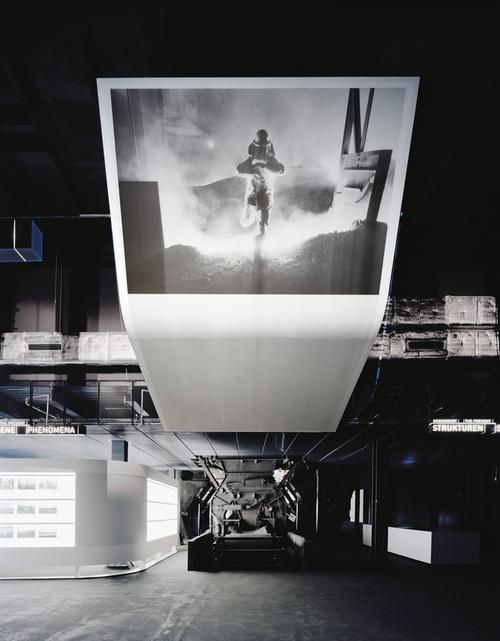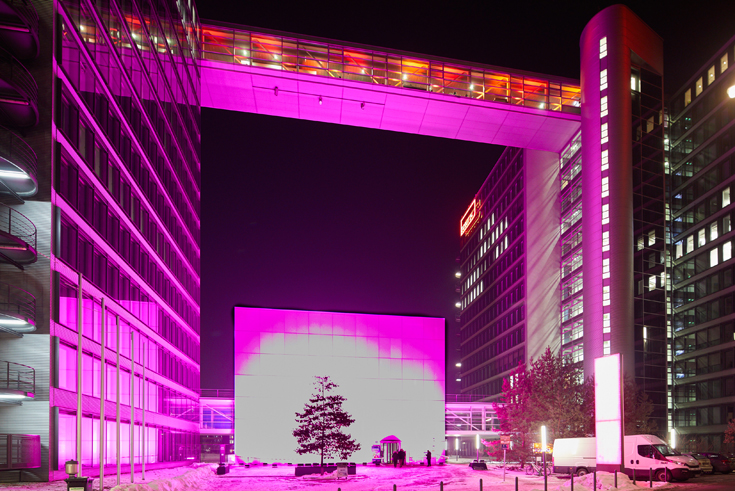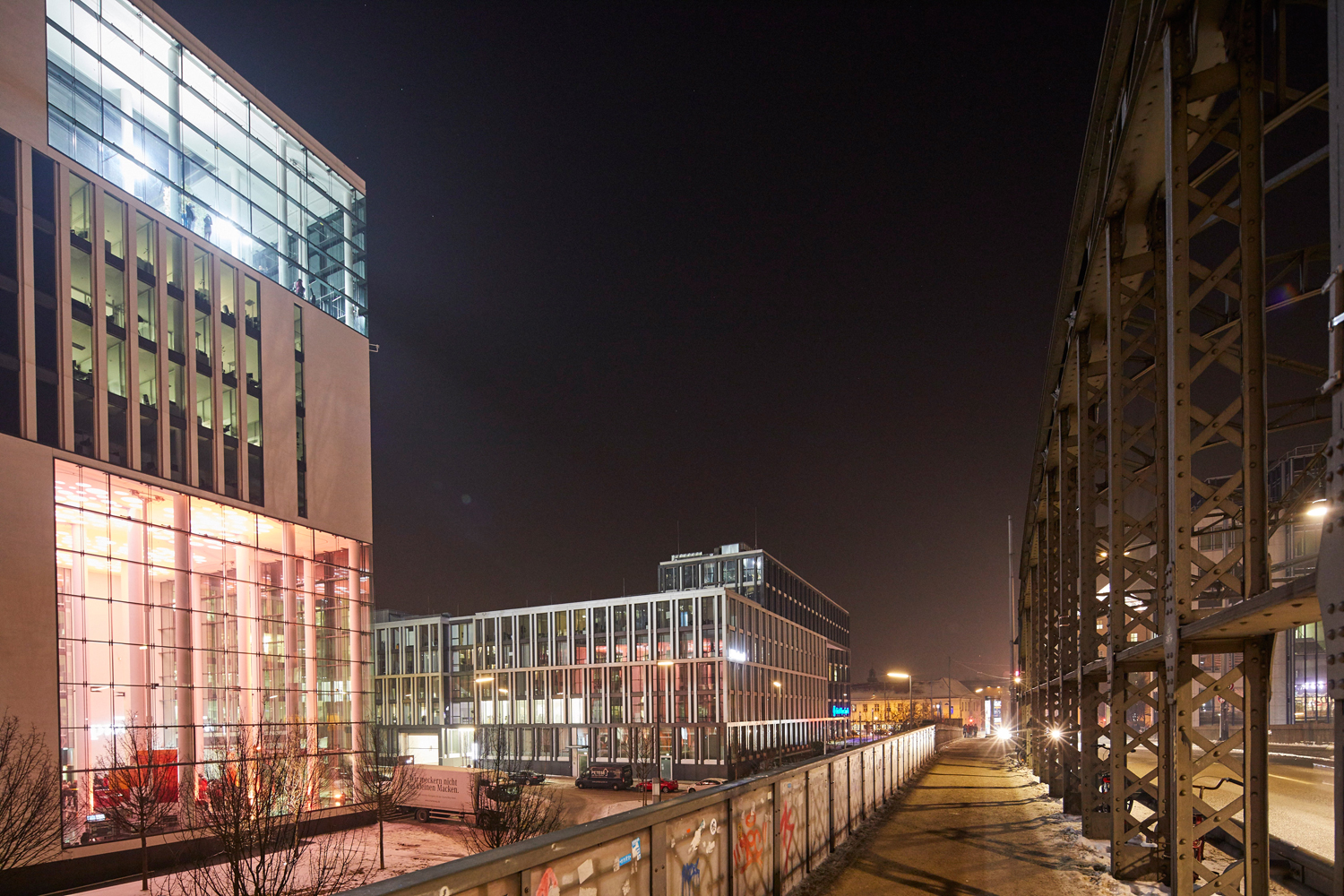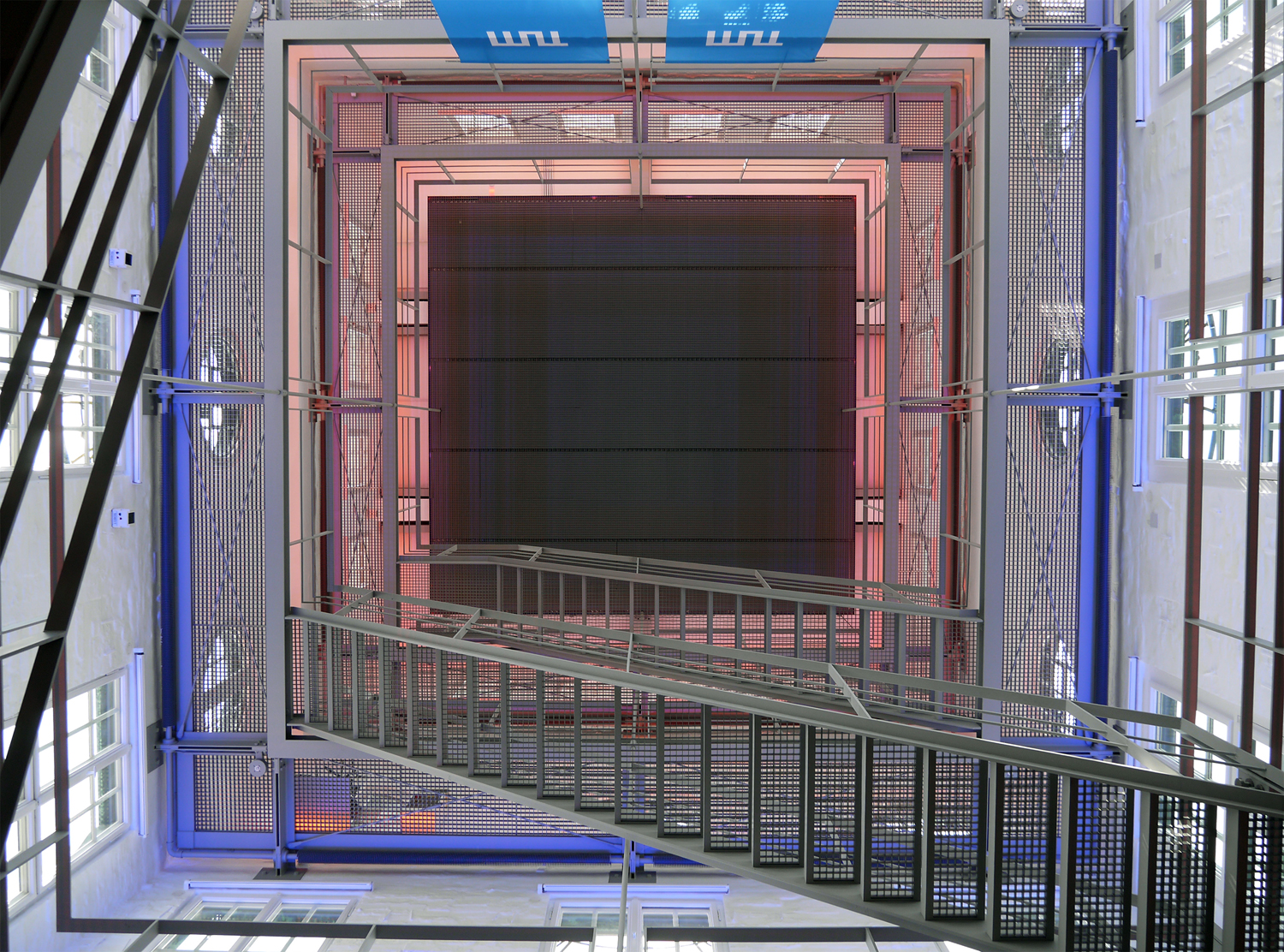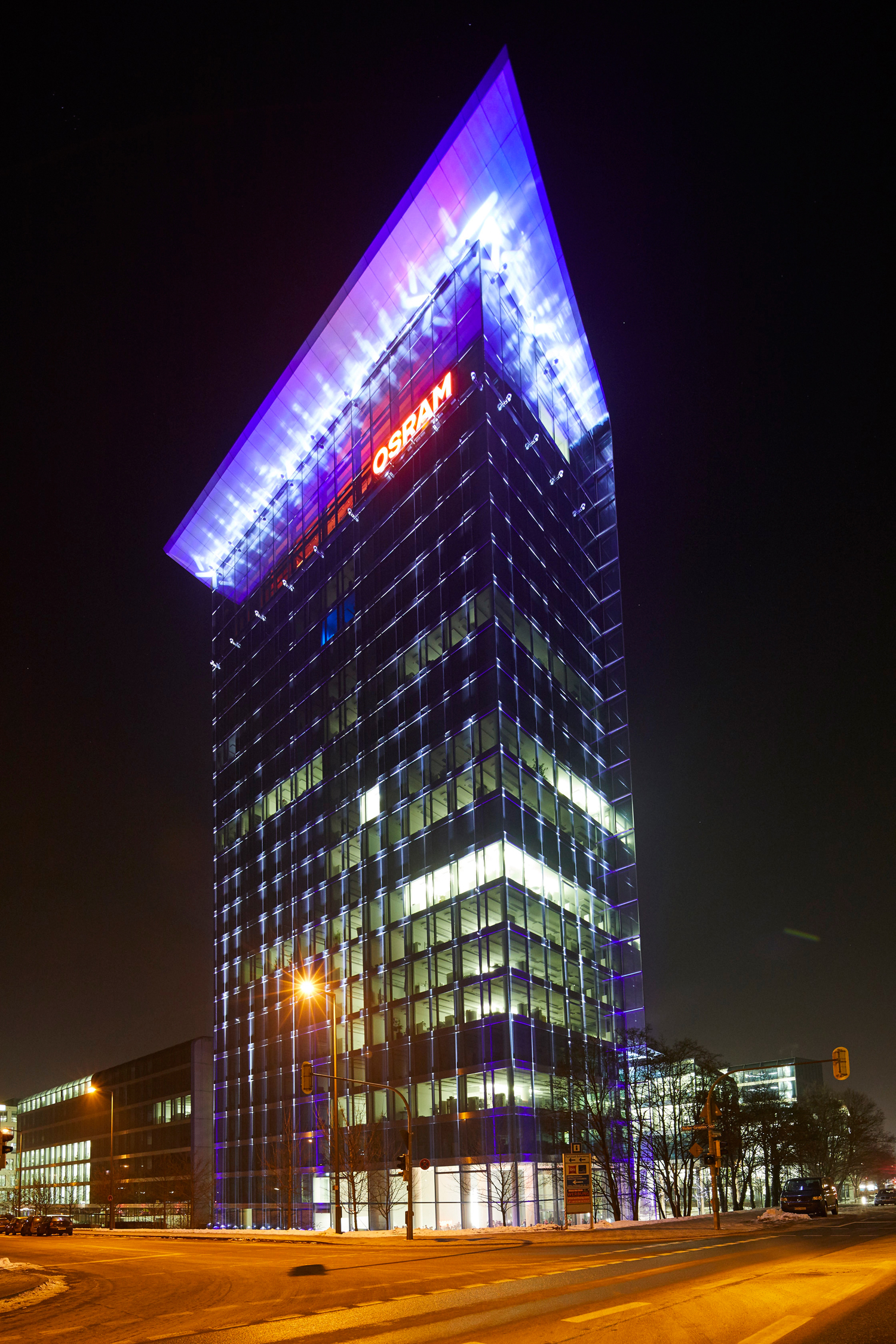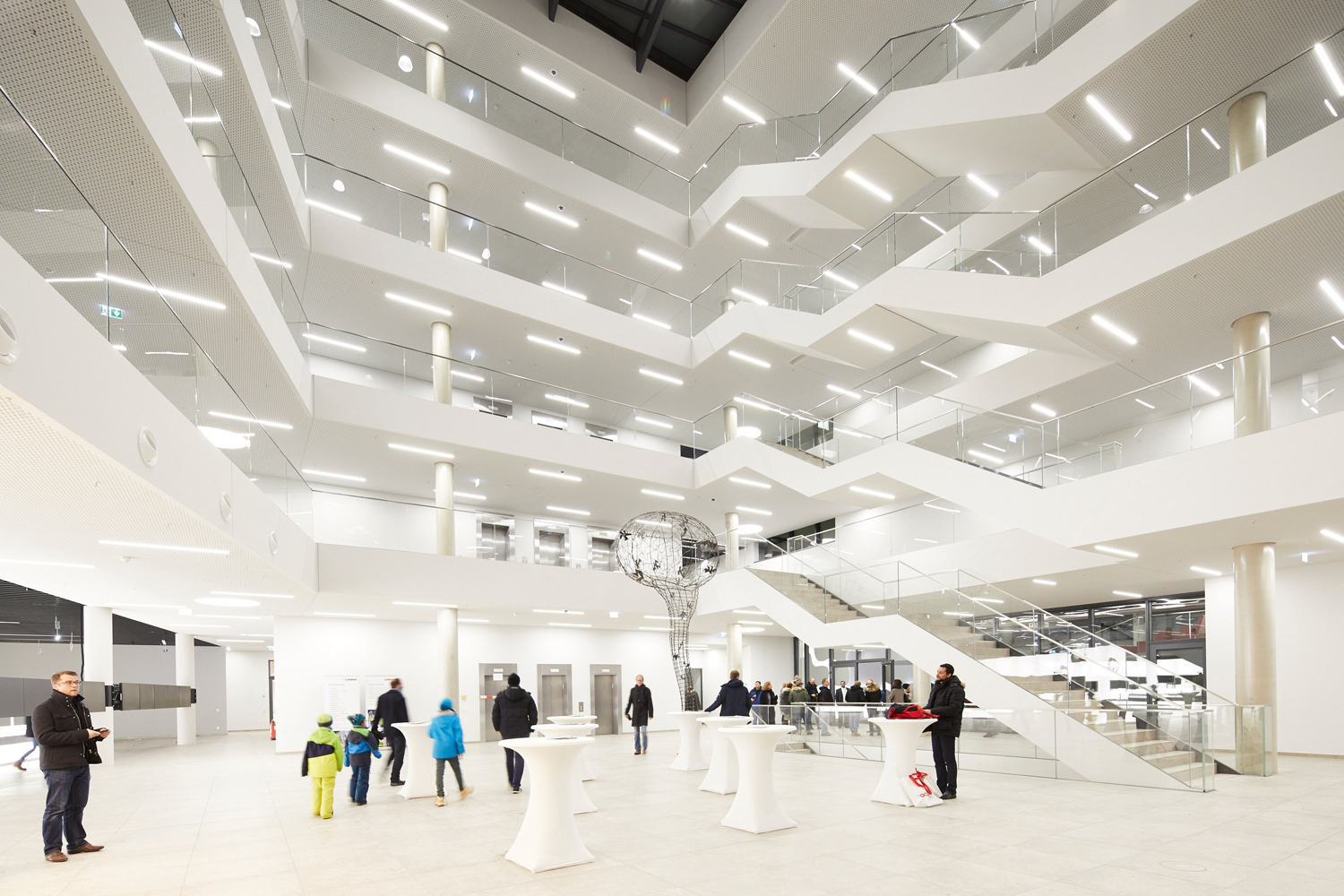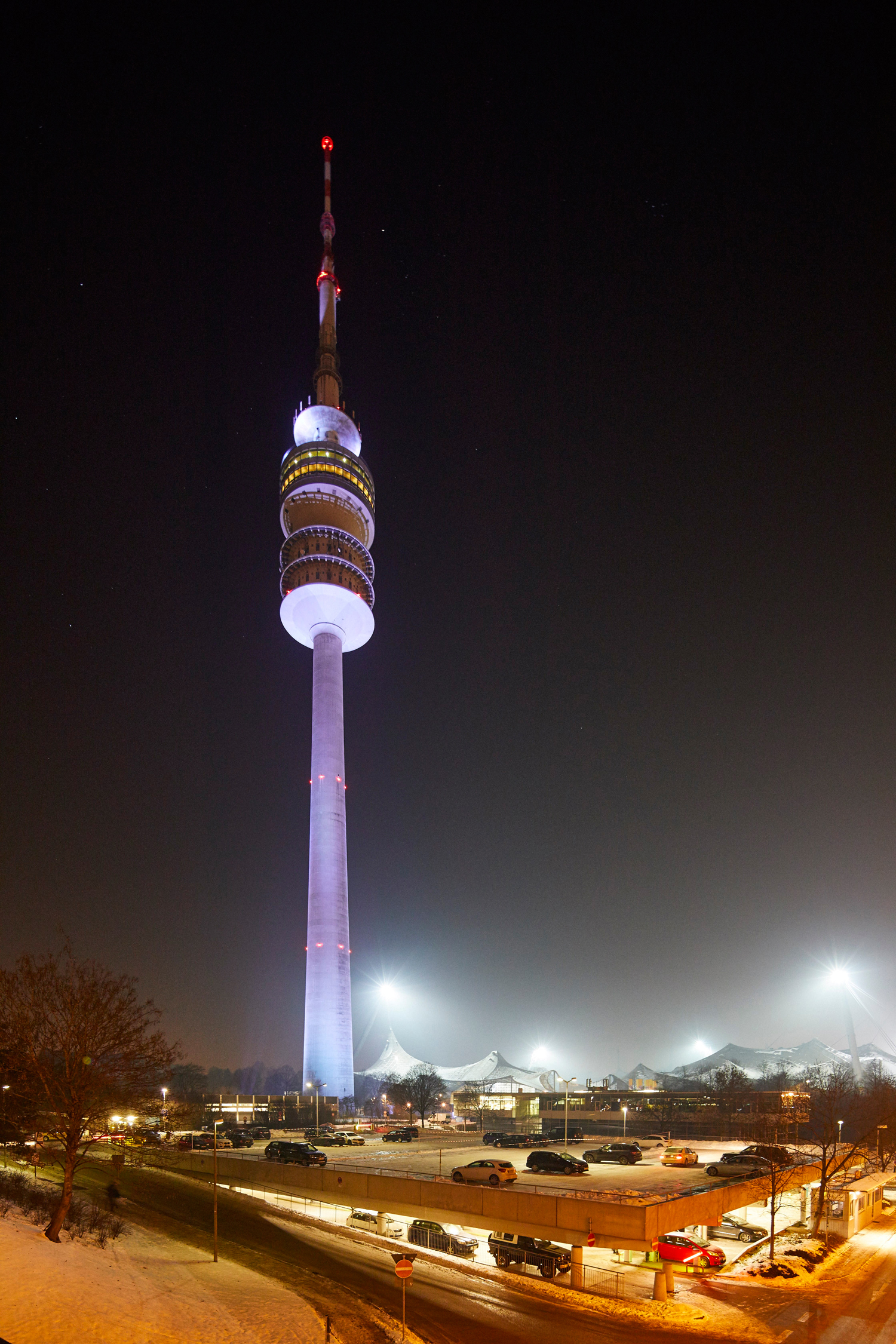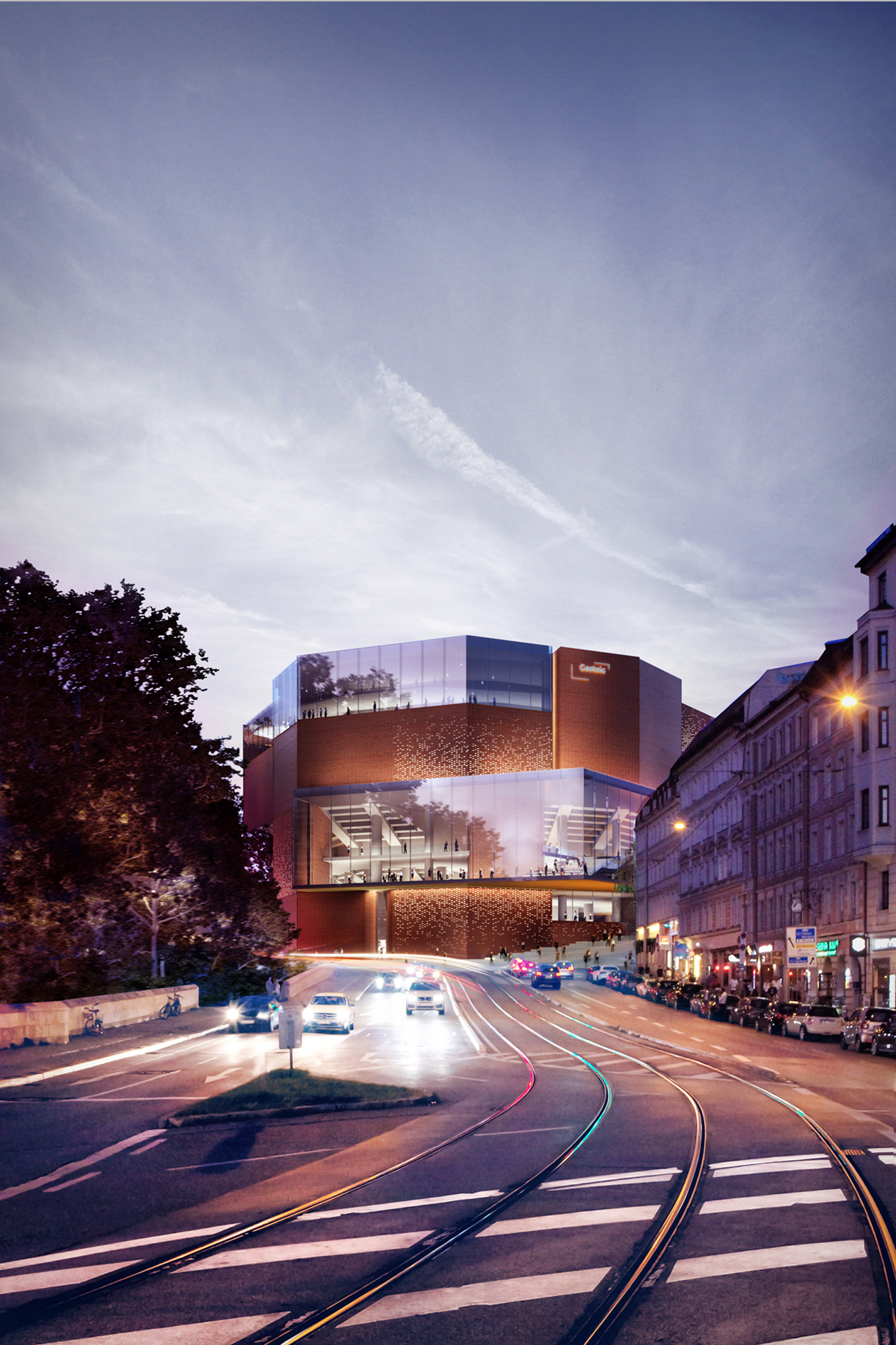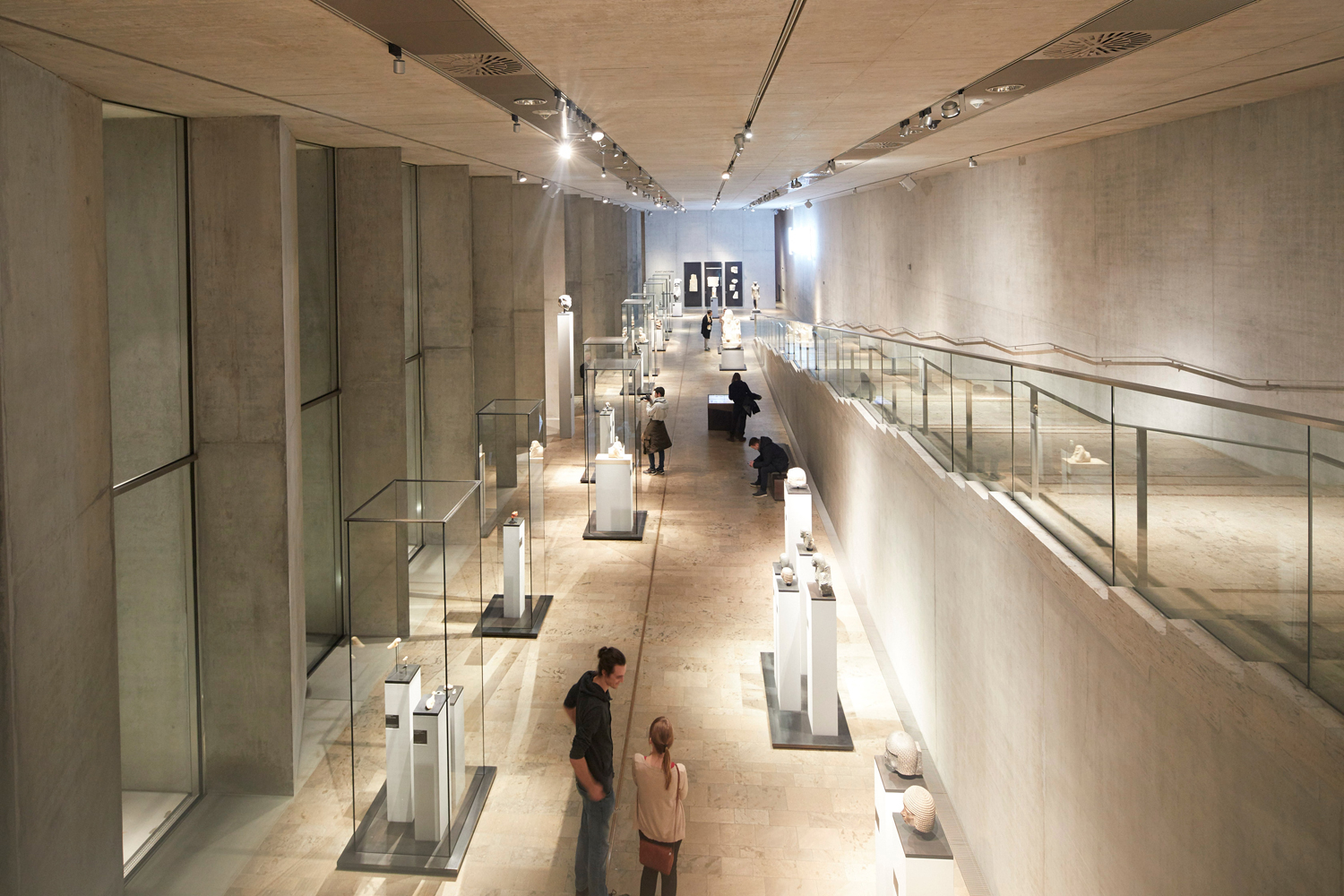One evening, one city, fifty architectural exhibits

Impressionen von der Langen Nacht der Architektur im Jahr 2017; Foto: Messe München GmbH
Those who have participated in the event are already familiar with the driving and coloured routes that radiate from Odeon's Square to the selected architectural highlights. Buses will leave on Friday, 18 January 2019, between 1900 and midnight for the various objects that are scattered all over the city. In addition, guided tours to be completed on foot in the city centre will examine the architectural layers of the Old Town, inner-city traffic concepts and the Kunstareal ("art district") from the perspective of its architectural culture.
A monument restoration of a special kind
During such a tour, for example, visitors can see the inside of the clock tower of the TU Munich's Thierschbau, which architects Schmidt-Schicketanz und Partner have recently converted into an event hall for special academic presentations and anniversary celebrations. To this end, this striking highlight on Gabelsbergerstraße was completely gutted above the 4th floor, so that the so-called Tschira Forum is now crowned by an airspace. To replace the load-bearing reinforced concrete floors, the architects installed a steel structure inside the tallest part of the university complex built by Friedrich von Thiersch in 1916. Where previously the floor levels were located, now there are only narrow, surrounding gratings, which are accessed via steel staircases and which serve as viewing platforms.
"Lying" and "standing" office towers
The view from the sky lounge in the Osram building will also undoubtedly be very popular. As part of The M.Pire complex, designed by Chicago-based architect Helmut Jahn, the approximately 85-metre-high office tower with its projecting roof forms the gateway to the Parkstadt Schwabing in the north of Munich. Half as high but no less sensational is the Medienbrücke in Munich's Werkviertel to the south, completed by Steidle Architekten in 2011. Here, too, groups of visitors can enter the upper floors of this "horizontal skyscraper" via one of the two massively-constructed access cores. Another example of an office building that forms part of Munich's recent architectural history is the Siemens headquarters building designed by Henning Larsen. The new building, completed in 2016 and considered a prime example of sustainable architecture, will open its atrium to visitors.
Unknown aspects of familiar architecture
Many other, well-established Munich architectural highlights will be allowing visitors to take a look behind the scenes on the evening of 18 January – be it on a guided tour of the Olympic Park, including of the Olympic Tower, with new and interesting stories about its construction, including for locals, or presentations at the Gasteig, where the exciting future of the cultural centre will be discussed against the backdrop of the recently-completed architectural competition and the upcoming renovation of the complex. Sacred buildings, museums and showrooms will also be included in the upcoming Long Night of Architecture, all representing the city's history in their own way or addressing a special relationship between the built structure and its current use.
The detailed programme with brief descriptions of the buildings is available online at www.lange-nacht-der-architektur.de. Registration is required for some of the tours.
www.lange-nacht-der-architektur.com
A monument restoration of a special kind
During such a tour, for example, visitors can see the inside of the clock tower of the TU Munich's Thierschbau, which architects Schmidt-Schicketanz und Partner have recently converted into an event hall for special academic presentations and anniversary celebrations. To this end, this striking highlight on Gabelsbergerstraße was completely gutted above the 4th floor, so that the so-called Tschira Forum is now crowned by an airspace. To replace the load-bearing reinforced concrete floors, the architects installed a steel structure inside the tallest part of the university complex built by Friedrich von Thiersch in 1916. Where previously the floor levels were located, now there are only narrow, surrounding gratings, which are accessed via steel staircases and which serve as viewing platforms.
"Lying" and "standing" office towers
The view from the sky lounge in the Osram building will also undoubtedly be very popular. As part of The M.Pire complex, designed by Chicago-based architect Helmut Jahn, the approximately 85-metre-high office tower with its projecting roof forms the gateway to the Parkstadt Schwabing in the north of Munich. Half as high but no less sensational is the Medienbrücke in Munich's Werkviertel to the south, completed by Steidle Architekten in 2011. Here, too, groups of visitors can enter the upper floors of this "horizontal skyscraper" via one of the two massively-constructed access cores. Another example of an office building that forms part of Munich's recent architectural history is the Siemens headquarters building designed by Henning Larsen. The new building, completed in 2016 and considered a prime example of sustainable architecture, will open its atrium to visitors.
Unknown aspects of familiar architecture
Many other, well-established Munich architectural highlights will be allowing visitors to take a look behind the scenes on the evening of 18 January – be it on a guided tour of the Olympic Park, including of the Olympic Tower, with new and interesting stories about its construction, including for locals, or presentations at the Gasteig, where the exciting future of the cultural centre will be discussed against the backdrop of the recently-completed architectural competition and the upcoming renovation of the complex. Sacred buildings, museums and showrooms will also be included in the upcoming Long Night of Architecture, all representing the city's history in their own way or addressing a special relationship between the built structure and its current use.
The detailed programme with brief descriptions of the buildings is available online at www.lange-nacht-der-architektur.de. Registration is required for some of the tours.
www.lange-nacht-der-architektur.com
